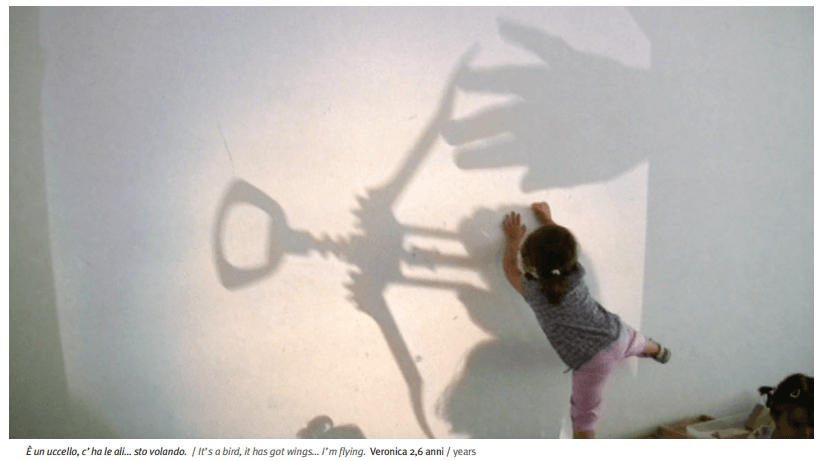Events Archive
Welcome
... to our programme for 2025. We will be adding to these dates, so watch this page.
Centres are showing great enthusiasm to connect and grow, and we will be offering seminars, events and exchanges to maximise the potential of these times.
If you are interested in discussing bespoke professional development possibilities for your centre please get in touch.
Go HERE if you want to read about past events, presentations seminars.
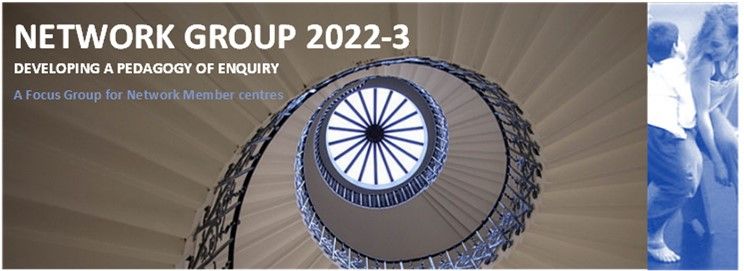
A Sightlines Initiative Pathway for Network Centres evolving & evidencing relational pegagogy
INTRODUCTION SESSION
The Focus Group will be a small group of centres (envisaged around five) committed to evolving 'Environments of Enquiry' pedagogy, through systemic evolution, researching one another's practice through dialogues and coursework, and examination of other reference pedagogy, particularly that of the preschools of Reggio. We may also invite collegiate participation from network colleagues engaged in appropriate academic research.
We aim to develop a public visits programme and documentation library for other educators and network members, showcasing work of the participant group.
Monthly online sessions will be 4p.m. unless otherwise arranged.
Programme
September – October
- Introduction session online (free to all network members prior to signup.) You must log on first to register - if you have forgotten your member logon (or are interested in participating but can't make the intro date) then email
This email address is being protected from spambots. You need JavaScript enabled to view it. without delay. - Establishment of the group, including grouphub registration to dialogue systems.
November – December
- Introductions online, including virtual tours; examinations of enabling systems
- Establishing centre-based intentions for systems development and evidencing
- Discussion focus: ’How does the daily life of the school/centre nurture children’s fascinations and an environment of enquiry?
January – April
- Seeing & nurturing relationship in children’s learning processes: examining the centres’ uses of Time, Space and Attention;
- Nurturing in the educators a culture and consciousness of questioning and seeing things differently;
- Managing and nurturing Learning groups as part of the daily life.
- April: first review of impact and effectiveness through exploration of centres’ documentations.
May – July
- Presentations; editing documentation
- Initiation of first public visits programme
- Discussion focus: making learning visible
NOTES
- The discussion foci continue to build over the course – they become layered up during the year;
- The group will be structured and facilitated by two Sightlines Initiative consultants from outside the group.
- There will be up to three nominated participants from each centre.
- We invite academic Network colleagues (e.g. those who are undertaking appropriate postgraduate research) to participate as co-participants.
- The £750 fee is for the whole programme participation for one centre and may be paid in installments.
| Date | Wednesday 21st September 2022 |
| Price | This introduction session online is free to all network members prior to signup. |
| Please Note: | The Introduction session does not commit your centre to participate in the group. Interested Centres will sign up by October 1st. |
| Times | 4.p.m. |
| Location/Map | online |
The preschools of Reggio Emilia have for more than a half-century been an international beacon for educators seeking to form enlightened education.
The vision and determination of a local community to create places of warm convivial learning for their children, enriched by a tenacious, researchful vision for education is a lasting and powerful contradiction to the idea of sitting children in an environment of passive instruction.
These are times of possibility. Amidst calls and demands to ‘return to normal’ there are many who have lost patience with the ‘old normal’ or have seen that other ways of living and learning are indeed preferable. Multitudes of educators, head teachers, parents and advocates are striving to protect and develop possibilities for educational experiences with children’s rights, wellbeing and proclivities for natural enquiry at the heart. Internationally we can see the development of education with principles informed by the exuberant work of Reggio’s preschools.
Sunday 12th - Friday 17th June 2022
Loris Malaguzzi International Centre, Reggio Emilia, Italy.
This is a one-week study visit to learn about and be inspired by the world renowned educational approach of the preschools and infant toddler centres of Reggio Emilia.
This course will explore the key principles underpinning the Reggio approach to early childhood education including:
- History and background
- Creativity and expressive languages of children
- The pedagogy of listening
- The environment as 'the third teacher'
- Parents as partners
- Democratic citizenship
- Children as the subjects of rights
- Children and educators as researchers
- Observation, interpretation, documentation
- Making learning visible
- Professional dialogue
Read on for further details and booking, including how you will receive our help and support before, during and after the study week.
| Date | Sunday 12th June 2022 |
| End Date | Friday 17th June 2022 |
| Cut off date | Friday 3rd June 2022 |
| Available places | 51 |
| Price | £1,560 |
| Location/Map | Reggio Emilia, Italy |
| Download info | SI_Reggio_Study_Week_2022.pdf |
-
What’s gone wrong with education and how can we fix it?
Join the progressive alliance organisation Compass on Thursday 7th April for the first of two events examining how to create the education system our children truly deserve.

Covid-19 has exposed the vast inequalities baked into the way we educate children in the UK. But there’s a whole lot more that needs changing – and most politicians don’t like talking about it.
- Are we genuinely providing children and young people with the education they need to deal with the huge challenges ahead?
- Are we finding the spark in every child?
- Have schools become exam factories?
- What do we want for our children, here and now – and for the future?
In short, what’s the point of education in the 21st century?
Joining us to discuss are this and much more are four education thinkers and doers:
• Peter Moss, Emeritus Professor of Early Childhood Provision at UCL Institute of Education University College London
• Christine Merrick, former Ofsted inspector and ex headteacher with nearly fifty years’ experience in early years and primary education in the UK and abroad
• Robin Duckett, founder of Sightlines Initiative for creative practice in UK early education
• Madeleine Holt, education campaigner and filmmaker in innovative primary and secondary schools through Schools on Screen
At the event we we’ll explore:
- The spread of GERM – the Global Education Reform Movement – throughout our system
- Its symptoms – standardisation, market-led competition, a narrowed curriculum, and test-based accountability
- The human cost: a burgeoning workload and unhappy staff and students
It’s time to question what’s driving education: is it the needs of children and young people, or something else entirely?
Register to join the call – and keep your eyes peeled for our second session on 19th May looking at visions, examples and solutions.
| Date | Thursday 7th April 2022 |
| Price | free; online registration required |
| Presenters |
• Peter Moss, Emeritus Professor of Early Childhood Provision at UCL Institute of Education University College London |
| Times | 6 - 7.30p.m. |
How do children make meaning through multiple modes or ‘languages’, including the visual? How can we recognise, value and support all children’s metaphorical thinking? What can we learn about our own understanding in the process?
 "Furry Stickman" - Winnie, Little Jungle School of Early ChildhoodLondon ReFocus has been considering these questions throughout a two-year project exploring ‘Visual Metaphor’, initiated as a Sightlines Network project in 2019 & inspired by a recent project focus in Reggio Emilia’s preschools and infant-toddler centres. You can read initial project descriptions and papers through following the link.
"Furry Stickman" - Winnie, Little Jungle School of Early ChildhoodLondon ReFocus has been considering these questions throughout a two-year project exploring ‘Visual Metaphor’, initiated as a Sightlines Network project in 2019 & inspired by a recent project focus in Reggio Emilia’s preschools and infant-toddler centres. You can read initial project descriptions and papers through following the link.
The event will showcase some of the ongoing collaborative reflection and enquiry from early years settings in and around London. We will consider the importance of materials, environments and the adult’s role in supporting children to make visual metaphors, and what insights these can offer into children’s thinking.
London ReFocus is part of the Sightlines Initiative Network, bringing together educators, artists, researchers and others interested in developing a creative and reflective approach to early years education, inspired by the practice of Reggio Emilia.
All are welcome to hear about our work and we will share an invitation to join us for the next stage of the project.
Our language is full of metaphor; arguably it comprises metaphor: as educators working to attune ourselves to a way of seeing the world metaphorically, we also are working to attune ourselves to the way others see the world , and can see the word metaphorically. We are also working to figure out the ways in which we can present educational opportunities or constructs for children in order to amplify their potentials, to exercise their own competencies …
| Date | Thursday 18th November 2021 |
| Price | free |
| Presenters | Members of London ReFocus |
| Please Note: | You will be sent a Zoom link upon registration, so look out for the email. |
| Times | 4.30 - 6p.m. |
| Location/Map | online |
Have you always wanted to hear directly and in detail about the Reggio Emilia Approach® from Reggio Emilia’s own educators and pedagogistas; and to have the opportunity to engage in live discussion?

With Reggio Children, Reggio Emilia’s organisation dedicated to international professional development, we are collaborating to offer a friendly and live substantial online study opportunity, especially for educators and others who are relatively new to encountering Reggio Emilia’s early childhood principles and experience.
Here is advance information and special participation opportunities.
It is a full immersion in the Reggio Emilia Approach® with 20 hours of live and recorded materials and the times of live events are specifically scheduled to make it easier for those in UK and similar time zones: most of the live events will be at 4pm UK time.
This will be a Reggio Children study group with international participation.
Sightlines Initiative has a priority registration access. When you activate the 'Book' button below, your browser will open a seperate registration on Reggio Children's website. From that page, you can register.The coupon "UK2021" must be inserted at the end of the shopping cart. By using this code, you will additionally be registered to participate in supplementary November/December seminars and discussion hosted by Sightlines Initiative:
- Listening and relationship as a foundation of practice in your setting
- Educators reflecting and building knowledge together: seeing & working with children’s fascinations
- Formations of children’s learning groups in an environment of enquiry.
- along with Background and introductory articles.
These are intended to contextualise the experience of Reggio Emilia, and initiate pathways for you and your colleagues to make relational pedagogy the heart of your work with children and their families. A further programme will also be available to support the continuing evolution of your practice.
| Date | Friday 15th October 2021 |
| End Date | Friday 22nd October 2021 |
| Price | Euros 700 |
| Please Note: |
Download the Advance Information pdf and share with colleagues. |
| Location/Map | online |
| Download info | October digital Reggio Children Study Week.pdf |
Co-constructing learning in the English EYFS - an introductory course
The English EYFS Statutory requirements have four overarching principles – unique child, positive relationships, enabling environments with teaching and support from adults, who respond to their interestsand needs and help them build their learning over time.
Children and adults construct the curriculum together: practitioners….build on children’s motivations and interests to support and extend their development and learning. The curriculum is co-constructed between children, practitioners and families. Children bring funds of knowledge-based interests to the setting, and they are motivated to learn through connecting new experiences to what they already know and can do.
Birth to Five Matters 2021 p.39
This introductory four-session course focusses on working with principles and characteristics of social co-constructive early childhood education pedagogy in relationship to these statutory requirements and related non-statutory guidelines. It provides an opportunity for educators to develop their practice, expertise and capacity to build environments in which children’s learning flourishes. It is founded upon building learning environments of ENCOUNTER, ENQUIRY, EXCHANGE, EXPRESSION
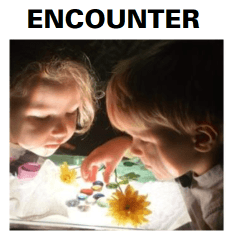
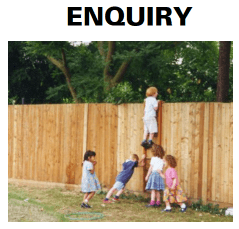
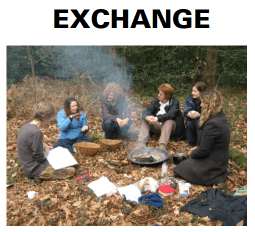
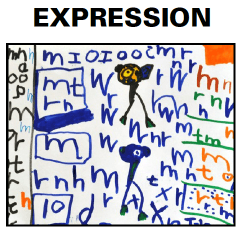
Using examples from Sightlines Initiative reference projects work available on the Birth to Five Matters resource library, and from our long-standing experience of the work of Reggio Emilia’s preschools, the course will discuss:
- Understanding and enabling co-construction;
- Exploring processes of enquiry;
- Being responsive & responsible educators;
- Building your reflective systems.
It is ideal for managers, nursery heads and teams of educators who are actively developing their pedagogy together.
Everybody knows that early years’ educators can be creative, critical and reflective; that young children are creative, strong, powerful learners, and that educators and children thrive in creative enabling environments … It’s very difficult to turn beliefs, values and aspirations into practice … there’s a gap between what we want to do and what actually happens. This work is designed for everybody who wants to bridge that gap.
Mary Jane Drummond, Early Childhood Education Consultant
| Date | Wednesday 13th October 2021 |
| End Date | Wednesday 1st December 2021 |
| Cut off date | Tuesday 12th October 2021 |
| Available places | 0 |
| Price | £140 |
| Member Discount | 10% |
| Group Discount |
2 - 3 people = £125 p.p. 4 - 8 people = £120p.p. Please enquire regarding larger groups. Discount is calculated during Group Registration process. |
| Presenters |
Dr. Christine Merrick Robin Duckett Liz Elders |
| Please Note: |
Seminar Dates: The online platform will be Zoom: the link will be issued on the previous working day. You can download the information pdf below and share with colleagues. |
| Times | Wednesdays @ 4 - 5.30pm |
| Location/Map | online |
| Download info | Learning is What We Do Together - introduction to co-constructive edn in EYFS 2021.pdf |
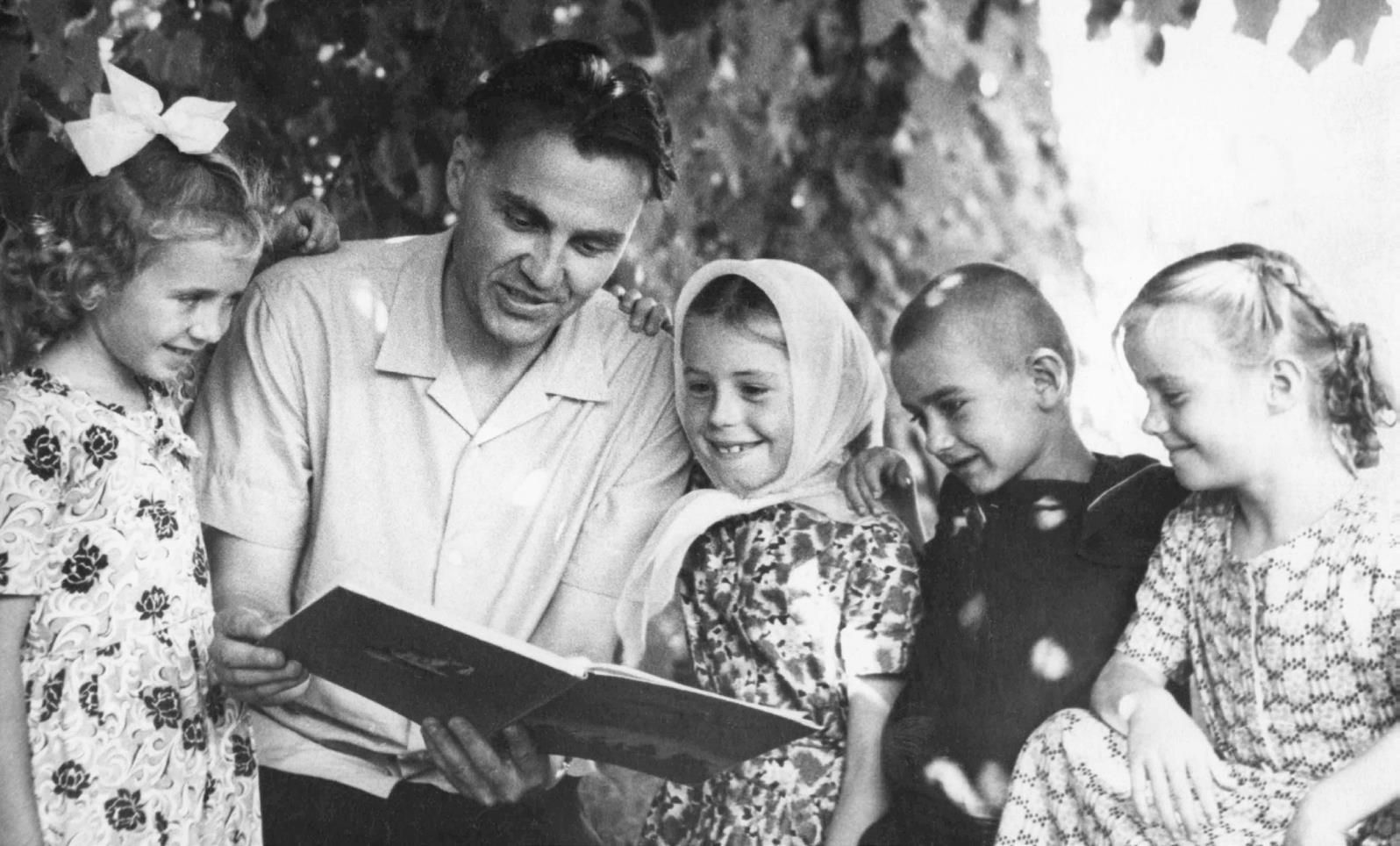
Vasily Sukhomlinsky was a Ukrainian school teacher. From 1948 to 1970 he was the principal of a combined primary and secondary school in the rural settlement of Pavlysh. His school was made famous through his many books and articles, which have been read by millions. Thousands of educators, from the length and breadth of the Soviet Union and beyond, travelled to see his school with their own eyes, and millions of educators around the world have been inspired by his example.
Sukhomlinsky was born in the middle of a civil war, and survived the famine known by Ukrainians as the Holodomor. He was nearly killed on the battlefield during the Second World War, and his first wife and child were brutally killed by a Gestapo officer, aided and abetted by local collaborators. He could easily have become an embittered man, but he found a catharsis for his suffering through his work as a teacher and his love for children.
Working in very difficult circumstances, he created a model school, and a holistic educational theory to support it. Those of you familiar with the educational philosohy of Reggio Emilia's Loris Malaguzzi will find much in common.
For two years before they join the compulsory school program, I work with little children in a preparatory group. I would call this period a school in curiosity. This is first and foremost an educator making contact with a child’s brain, which is so plastic and responsive during the preschool years. The main method employed in making this contact is to inspire children with wonder and amazement. The main instrument is a teacher’s words, and the main form of activity is excursions to the source of thought and language, in the midst of the inexhaustible richness of nature.
My aim is that a growing curiosity should become an autonomous force, governing the interests and aspirations of children.
If I manage to establish curiosity as an inextinguishable flame, I know that children will never lack ability.
 Yuliya Kiva (16) illustrating Sukhomlinsky's tale 'Morning Breeze'
Yuliya Kiva (16) illustrating Sukhomlinsky's tale 'Morning Breeze'
This special session is led by Dr. Alan Cockerill, in Brisbane Australia (hence our choice of time.) Alan is translator of many of Sukhomlinsky's works, and collaborates with Sukhomlinsky's daughter Professor Olga Sukhomlyns’ka.
To our knowledge this is the first presentation to a UK audience (we hope worldwide) of the work of this remarkable educator, from whom there is much to learn in our ongoing challenges to build humane and creative education.
You can access on our website e-versions of Sukhomlinsky's book 'My Heart I Give to Children' and Dr. Cockerill's biography of Sukhomlinsky 'Each One Must Shine.' They give immense food for thought and action for any conscientious educator or parent today.
Registrants will be sent further introductory material, in order to make best use of this precious time, and we welcome participants' questions before the session: registrants will be invited to submit questions.
| Date | Saturday 2nd October 2021 |
| Price | £35 |
| Member Discount | £5 |
| Presenters | Dr. Alan Cockerill, Brisbane |
| Please Note: |
|
| Times | 9.30 - 11a.m. |
| Location/Map | online |
Learning to Live Well Together ~
investigating the shaping of education from ethics of relationship & listening.
Seminar Six: Te Whariki: A woven mat which empowers the child
Dr. Lesley Rameka, Waikato, New Zealand
The whāriki or woven mat is a metaphor for New Zealand's ECE curriculum, in which four curriculum principles are interwoven with five curriculum strands:

|
EMPOWERMENT | WHAKAMANA |
WELLBEING | MANA ATUA |
Whāriki have symbolic and spiritual meaning for Māori. Weaving a whāriki takes knowledge, skill and time. It is almost always done collaboratively. In Māori tradition children are seen to be inherently competent, capable and rich, complete and gifted no matter what their age or ability. Descended from lines that stretch back to the beginning of time, they are important living links between past, present and future, and a reflection of their ancestors. These ideas are fundamental to how Māori understand teaching and learning.
 In Te Whāriki children are positioned as confident and competent learners from birth. They learn by engaging in meaningful interactions with people, places and things – a process that continues throughout their lifetimes; they are valued as active learners who choose, plan, and challenge. This stimulates a climate of reciprocity, ‘listening’ to children (even if they cannot speak), observing how their feelings, curiosity, interest, and knowledge are engaged in their early childhood environments, and encouraging them to make a contribution to their own learning.
In Te Whāriki children are positioned as confident and competent learners from birth. They learn by engaging in meaningful interactions with people, places and things – a process that continues throughout their lifetimes; they are valued as active learners who choose, plan, and challenge. This stimulates a climate of reciprocity, ‘listening’ to children (even if they cannot speak), observing how their feelings, curiosity, interest, and knowledge are engaged in their early childhood environments, and encouraging them to make a contribution to their own learning.
This influential and culturally-grounded policy work, published originally in 1996, wove a new story of possibilities for children, families, educators and society, going against the grain of prior, narrower expectations.
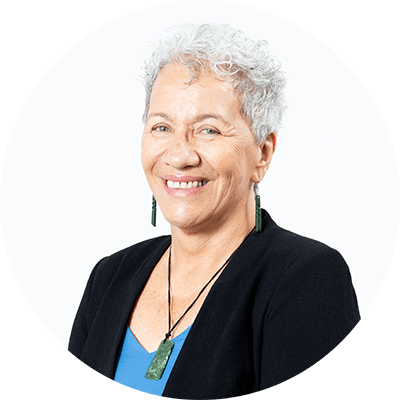 Dr. Lesley Rameka was instrumental in the 2017 edition of the national policy, working closely across cultures, and presents its core ethics and values. Lesley is a Senior Research Fellow at the Wilf Malcom Institute of Educational Research, and Poutama Pounamu Māori Education Research Centre at the University of Waikato, New Zealand, and president of Te Rito Maioha Early Childhood New Zealand. She is a kaupapa Maori researcher, who developed kaupapa Maori assessment for learning resources in early years, was a member of the group updating the early childhood curriculum, Te Whariki in 2017, and has done research in kohanga reo, Maori bilingual centres and general ECE centres over a long period of time. She brings new insights on ethics, relationships and formative experiences of Te Whariki from a Maori perspective.
Dr. Lesley Rameka was instrumental in the 2017 edition of the national policy, working closely across cultures, and presents its core ethics and values. Lesley is a Senior Research Fellow at the Wilf Malcom Institute of Educational Research, and Poutama Pounamu Māori Education Research Centre at the University of Waikato, New Zealand, and president of Te Rito Maioha Early Childhood New Zealand. She is a kaupapa Maori researcher, who developed kaupapa Maori assessment for learning resources in early years, was a member of the group updating the early childhood curriculum, Te Whariki in 2017, and has done research in kohanga reo, Maori bilingual centres and general ECE centres over a long period of time. She brings new insights on ethics, relationships and formative experiences of Te Whariki from a Maori perspective.
| Date | Thursday 16th September 2021 |
| Price | £40 |
| Member Discount | 10% |
| Presenters |
Dr. Lesley Rameka, Waikato, New Zealand |
| Please Note: |
|
| Times | 7 - 8.30pm (U.K. time) |
| Location/Map | online |


